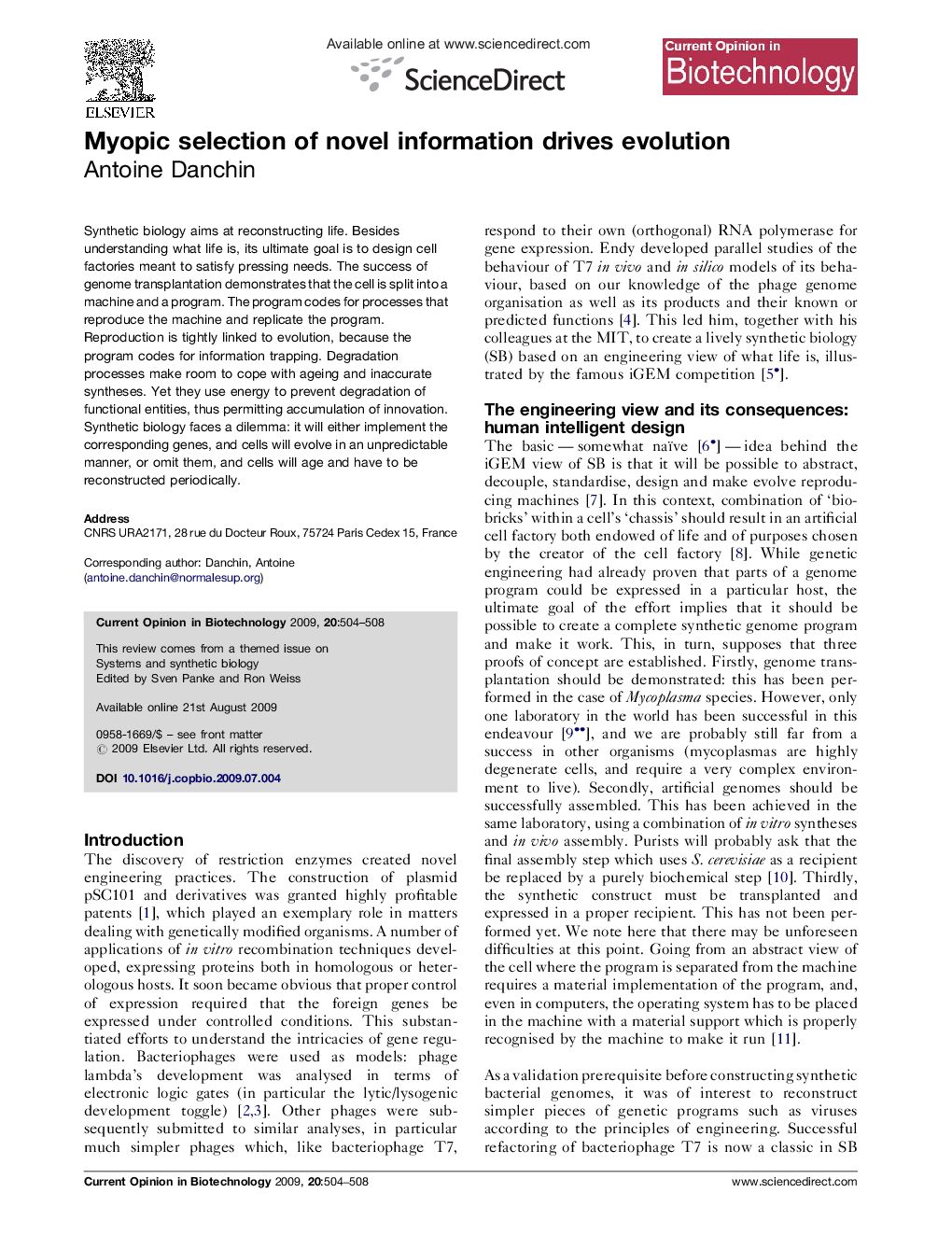| Article ID | Journal | Published Year | Pages | File Type |
|---|---|---|---|---|
| 16502 | Current Opinion in Biotechnology | 2009 | 5 Pages |
Synthetic biology aims at reconstructing life. Besides understanding what life is, its ultimate goal is to design cell factories meant to satisfy pressing needs. The success of genome transplantation demonstrates that the cell is split into a machine and a program. The program codes for processes that reproduce the machine and replicate the program. Reproduction is tightly linked to evolution, because the program codes for information trapping. Degradation processes make room to cope with ageing and inaccurate syntheses. Yet they use energy to prevent degradation of functional entities, thus permitting accumulation of innovation. Synthetic biology faces a dilemma: it will either implement the corresponding genes, and cells will evolve in an unpredictable manner, or omit them, and cells will age and have to be reconstructed periodically.
